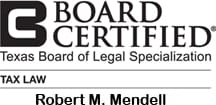Are There Specific Things That Can Trigger An Audit?
Once a taxpayer files his or her tax return, the Internal Revenue Service (IRS) checks the return for form and mathematical accuracy. The Collection Division then classifies it according to a system and passes it on to the Examination Division where it is given an initial review to determine whether there will be an office audit, field audit or no audit at all. A computer program called the Discriminant Inventory Function System (DIF) gives each individual tax return a numeric score after it has been processed. A high score may result in a return being selected for an audit. A return may also be chosen for an examination if information in third-party documentation such as a W-2 or 1099 form does not match information in the return. A return can also be selected for examination based on information from other sources (individuals, public records and newspapers) about possible noncompliance with tax laws or inaccuracies in the return.
There are a number of reasons why a return may be selected for closer examination or an audit. Some may be simple mistakes such as:
- Illegible handwriting
- Missing information such as Social Security number, address or daytime telephone number
- Incorrect mathematical calculation
- Forgetting to sign the return
- Writing down the wrong information such as Social Security numbers of dependents, names of dependents and transferring the wrong numbers from a schedule to the Form 1040
- Forgetting to attach additional documentation such as a W-2, schedule or form
Because even an honest mistake or simple error may trigger an audit, it is important to be extremely careful when completing your return.
There are also a number of situations that may trigger closer scrutiny from the IRS including:
- Claiming a large number of personal exemptions
- Taking the standard deduction when somebody else claimed you as a dependent
- Not acknowledging all your income
- Underreporting tip income
- Owing little or no tax because of excess deductions and credits that subjected you to the alternative minimum tax (AMT), but you did not calculate or pay the AMT
- Claiming the home office deduction
- Claiming substantial investment losses
- Claiming a large deduction for medical expenses
- Claiming a large number of business expenses
- Claiming large charitable contributions
- Filing as a head of household and failing to properly list your dependents or listing someone as a dependent who does not qualify
These are all situations in which the IRS may want to take a closer look to ensure that the taxpayer has proper documentation to support all the information in the tax return and that the taxpayer is paying the proper amount of tax.
Copyright © 2008 FindLaw, a Thomson Reuters business
DISCLAIMER: This site and any information contained herein are intended for informational purposes only and should not be construed as legal advice. Seek competent counsel for advice on any legal matter.



